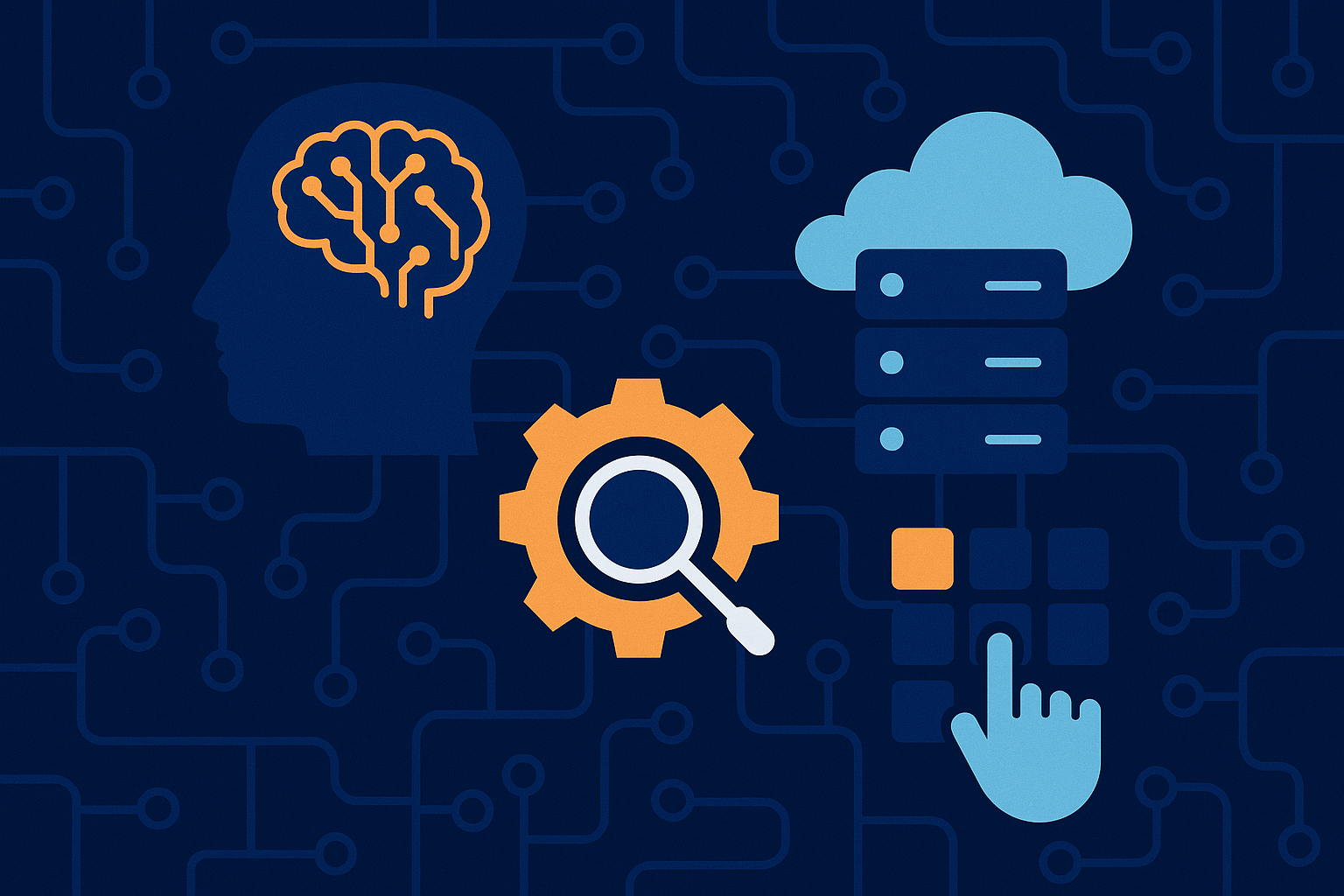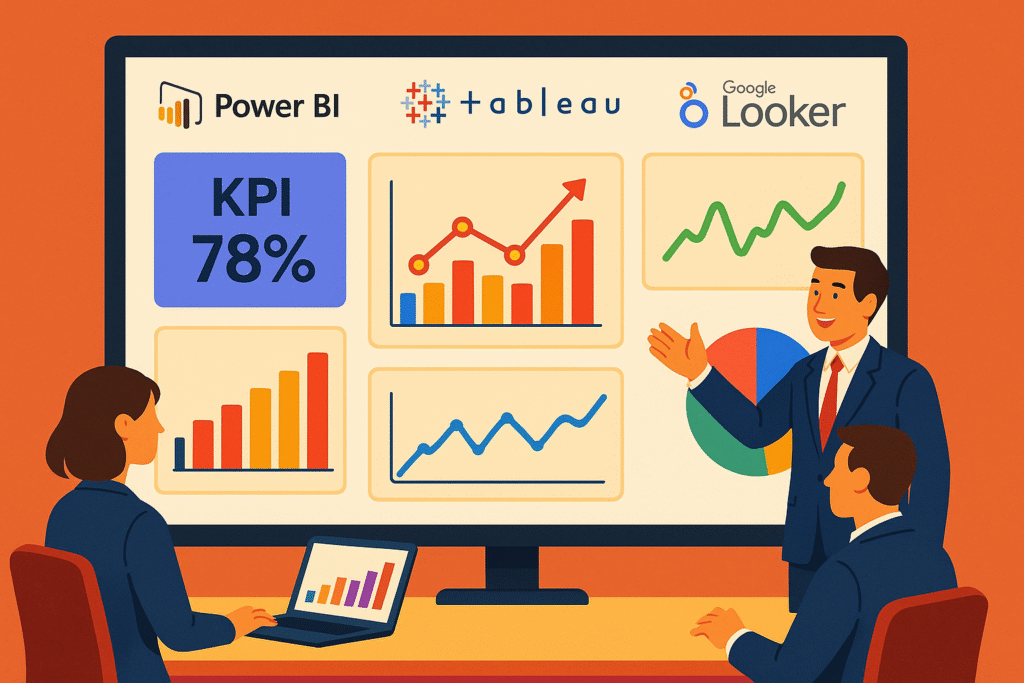Digital Transformation Trends for Business in 2025

In today’s rapidly evolving world, businesses must adapt or risk falling behind. As we move into 2025, it is more crucial than ever for organizations to understand and embrace the latest digital transformation trends for business. These trends not only drive innovation but also empower companies to operate more efficiently, enhance customer experiences, and stay ahead of competitors.
In this article, we’ll explore the top 10 digital transformation trends for business that are expected to dominate in 2025. Whether you are a startup founder or an enterprise decision-maker, understanding these trends will prepare you to lead with confidence and clarity.
1. AI-Driven Customer Engagement as a Digital Transformation Trend for Business
To begin with, Artificial Intelligence (AI) is revolutionizing customer engagement. More than just chatbots, AI now plays a significant role in predictive personalization, customer sentiment analysis, and instant query resolution.
Thanks to advancements in Natural Language Processing (NLP) and machine learning, businesses can deliver hyper-personalized interactions in real-time. For example, AI can automatically suggest products based on a customer’s browsing history, thereby increasing conversion rates.
In short, AI is no longer optional—it is a key driver of modern digital transformation trends for business.
2. Cloud Computing: A Foundation of Modern Digital Transformation Trends for Business
Secondly, cloud adoption continues to accelerate. Businesses are now embracing cloud-first strategies to enable scalability, reduce IT overhead, and support remote operations. Whether through public, private, or hybrid cloud solutions, the flexibility of cloud computing is helping businesses remain agile and resilient.
Moreover, as data volume grows, cloud-based analytics and storage become essential for managing operations cost-effectively. As a result, cloud platforms are at the heart of most digital transformation trends for business in 2025.
3. Hyperautomation: Reshaping Business Operations Through Digital Innovation
While automation has been around for a while, hyperautomation takes it a step further. This trend combines AI, Robotic Process Automation (RPA), and intelligent process mining to automate complex workflows end-to-end.
For instance, instead of automating only data entry, businesses now automate invoice processing, compliance checks, and even customer onboarding. Consequently, this reduces human error and significantly boosts efficiency.
Notably, Gartner predicts that hyperautomation will be a top strategic priority for businesses through 2025 and beyond.
4. Low-Code and No-Code Development: A Modern Trend in Business Digital Transformation
In addition to hyperautomation, low-code and no-code platforms are empowering non-technical users to create functional applications without writing code. As a result, business users can respond to market changes faster by building tools that solve specific pain points.
Furthermore, this democratization of software development shortens product development cycles and eases the burden on IT departments. Naturally, this trend is gaining momentum among both startups and large enterprises.
5. Real-Time Analytics and Dashboards: Fueling Informed Decisions in Modern Businesses
Additionally, organizations are investing heavily in real-time data analytics to support faster and more informed decision-making. With tools like Power BI, Tableau, and Google Looker, businesses can visualize KPIs, monitor performance, and forecast outcomes effectively.
Because digital transformation trends for business are rooted in data, having access to actionable insights in real-time is becoming a competitive necessity.

6. Cybersecurity as a Strategic Digital Enabler
On the security front, the rise of remote work and digital infrastructure has made cybersecurity a board-level priority. Businesses are adopting zero-trust architectures, AI-driven threat detection, and real-time response systems to safeguard critical assets.
In many industries, compliance requirements like GDPR and HIPAA are also pushing companies to rethink their data protection strategies. In this context, cybersecurity is no longer just an IT function; instead, it is a vital enabler of trust and continuity.
Therefore, no discussion of digital transformation trends for business is complete without emphasizing robust cybersecurity practices.
7. Digital Twins: Simulating Business for Smarter Decisions
Another emerging concept is the use of digital twins—virtual replicas of physical products, processes, or systems. These twins help businesses simulate real-world conditions, predict outcomes, and optimize performance before making costly decisions.
For example, manufacturers can use digital twins to test factory layouts, while city planners can simulate urban infrastructure models. Consequently, this approach reduces risk and increases operational efficiency.
Although still maturing, digital twins are poised to play a pivotal role in digital transformation strategies.
8. Blockchain and Trust in Modern Digital Business
Furthermore, blockchain is gaining traction beyond cryptocurrency. Businesses are leveraging blockchain to secure transactions, validate identities, and increase transparency across supply chains.
For instance, a blockchain ledger can help track the origin of goods, which is particularly valuable in industries like pharmaceuticals or food. By ensuring data integrity, blockchain supports ethical practices and builds trust with customers.
Given these benefits, blockchain is becoming an integral part of digital transformation trends for business.
9. Hybrid Work Tools Shaping Digital Workplace Trends
In the post-pandemic world, flexibility is key. Hence, companies are continuing to invest in hybrid work solutions such as Microsoft Teams, Zoom, Slack, and Miro. These tools enable seamless collaboration regardless of physical location.
Additionally, businesses are reimagining employee engagement through virtual onboarding, digital HR platforms, and performance tracking tools. Because employee experience directly impacts productivity, modern workplace tools are no longer a luxury—they’re a strategic imperative.
10. Composable Architecture for Scalable Business Growth
Lastly, 2025 will see a shift toward composable business architecture, where companies build modular, interoperable systems using APIs and microservices. Instead of relying on monolithic platforms, businesses can now assemble best-of-breed tools tailored to their exact needs.
This modularity improves flexibility and scalability, enabling rapid experimentation and adaptation. In other words, composability is the foundation for innovation in the modern enterprise.
Conclusion: Embracing Digital Transformation Trends for Business Success in 2025
In conclusion, the year 2025 presents both opportunities and challenges. However, by embracing the top digital transformation trends for business, organizations can position themselves for sustainable growth and long-term success.
From AI and cloud to automation and composable architectures, the digital era rewards those who act decisively and invest wisely. It is no longer a question of if you should transform—but how soon.
At Hepmade Solutions, we help forward-thinking businesses implement these transformative technologies efficiently and cost-effectively. Whether you’re exploring AI integrations, cloud migration, or modernizing legacy systems, our team is here to guide you every step of the way.
✅ Frequently Asked Questions (FAQs)
1. What are digital transformation trends for business in 2025?
Digital transformation trends for business in 2025 include the rise of AI-powered customer engagement, hyperautomation, cloud-first strategies, low-code platforms, and enhanced cybersecurity measures. Additionally, businesses are embracing real-time analytics, digital twins, blockchain, hybrid work models, and composable architectures to stay competitive and agile.
2. Why are digital transformation trends important for modern businesses?
Simply put, these trends enable businesses to remain relevant in a rapidly evolving digital economy. By adopting the latest innovations, companies can improve customer experience, reduce operational costs, and respond faster to market demands. Therefore, staying updated with digital transformation trends for business is critical for long-term success.
3. How can small businesses benefit from digital transformation?
Although digital transformation may seem enterprise-focused, small businesses benefit immensely as well. For instance, low-code tools and cloud services make it affordable to digitize operations. Moreover, automation helps small teams boost efficiency without needing a large workforce.
4. Is AI the most impactful trend in digital transformation?
While AI is indeed one of the most impactful trends, it works best in combination with others like automation, cloud adoption, and data analytics. Together, these technologies create a more intelligent and adaptive business environment. That said, AI often leads the way by enabling smarter decision-making.
5. What challenges do companies face during digital transformation?
Businesses often face challenges such as resistance to change, lack of digital skills, data security concerns, and integration complexities. However, with the right strategy and expert guidance, these obstacles can be overcome effectively.
Is your business ready for 2025?
Let’s transform together.
🌐 www.hepmade.com | ✉️ contact@hepmade.com
#DigitalTransformation #BusinessTrends2025 #ModernWorkplace #AutomationTools#CloudComputing #AIinBusiness #HepmadeSolutions #FutureOfWork
You May Also Like


Don't miss Our Update. Subscribe us for more info.
Request Quote
What type of solution you are seeking?
Please Select One
Your estimated budget
Please Select One
 Hepmade
Hepmade 
 Automation
Automation 

